Cliff Gallup’s Smooth, Lyrical Ballad-Playing Style
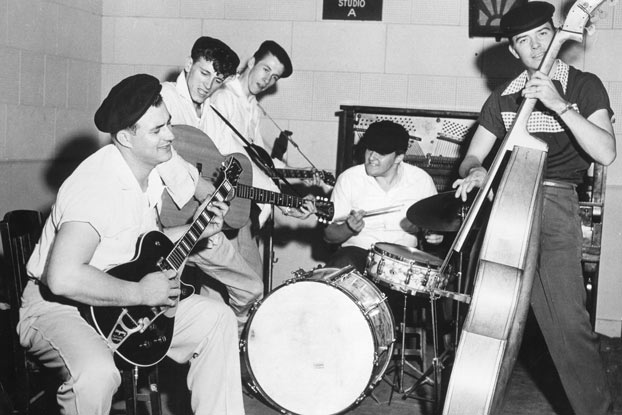
Last time, we examined the high-energy style of Cliff Gallup, whose innovative solos with rockabilly icons Gene Vincent and His Blue Caps set a new standard for sound, technique and imagination.
Below, we’ll look at how Gallup explored the opposite end of the musical universe—romantic ballads—with an equally successful balance of skill and attitude.
While best known for sweat-soaked rockers, Vincent filled out his repertoire by recording a number of pre-Fifties standards from the “Great American Songbook” era, including chestnuts such as “Peg O’ My Heart,” “Ain’t She Sweet” and “Up a Lazy River.”
FIGURE 1 illustrates a ballad combining melodic and harmonic features typical of countless pop songs like these, including a six-two-five-one harmonic cycle in the key of G (E7-A7-D7-G), a melody closely based on the chord structure, and strong, recurring rhythmic motifs.
Although quite sophisticated by today’s standards, pop songs then as now were built around catchy, intuitive melodies and rhythms––not coincidentally, the same values we look for in a well-phrased solo.
Compare this melody to FIGURE 2, which shows a Gallup-style solo built on the same song. His approach generally alternated between quoting the vocal melody, which gives the solo a strong backbone, and inserting improvised phrases to provide the (even then) dated material with a dose of spontaneity and energy. Analysis reveals that bars 1 and 2 repeat the vocal melody with some bluesy adornments, and bars 3 and 4 combine the same melodic rhythm with an improvised melody based on an A9 arpeggio (A C# E G B).
The vocal melody returns in bars 5 and 6, answered by a straight-up rock and roll lick in bars 7 and 8. After more melodic embellishment in bars 9 and 10, the solo takes another unexpected turn with a double-timed blues lick in bars 11 and 12 before settling back into the vocal melody for the final few bars.
For guitarists learning to “play changes,” ballad solos like this demonstrate how to navigate through chords without getting tangled up in theory and technique or sacrificing style and energy. Gallup erased the perceived lines between rock and roll, blues, rockabilly, pop, country, and jazz, and his approach directly inspired generations of eclectic and sophisticated electric guitar stylists, including Jeff Beck and Brian Setzer.
Given his impact on rock guitar, it is ironic to note that Gallup’s professional career lasted barely six months before he left the band, returned to his home and family in Virginia and took a job outside music. He continued to play locally until his death in 1988, but his obituary mentioned nothing of his days as a Blue Cap.
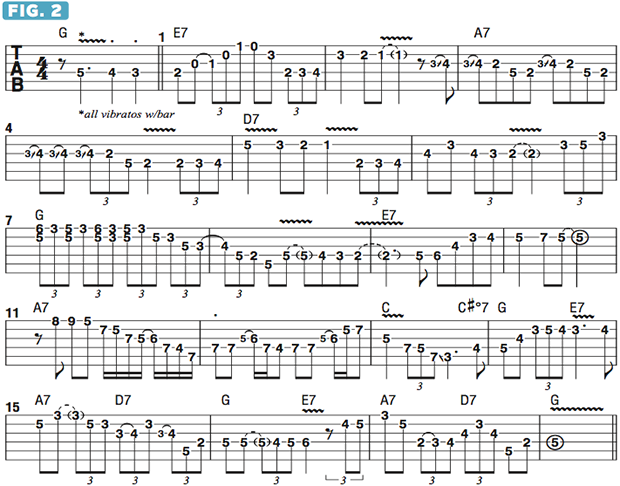
Get The Pick Newsletter
All the latest guitar news, interviews, lessons, reviews, deals and more, direct to your inbox!
“There are so many sounds to be discovered when you get away from using a pick”: Jared James Nichols shows you how to add “snap, crackle and pop” to your playing with banjo rolls and string snaps
Don't let chord inversions bamboozle you. It's simply the case of shuffling the notes around

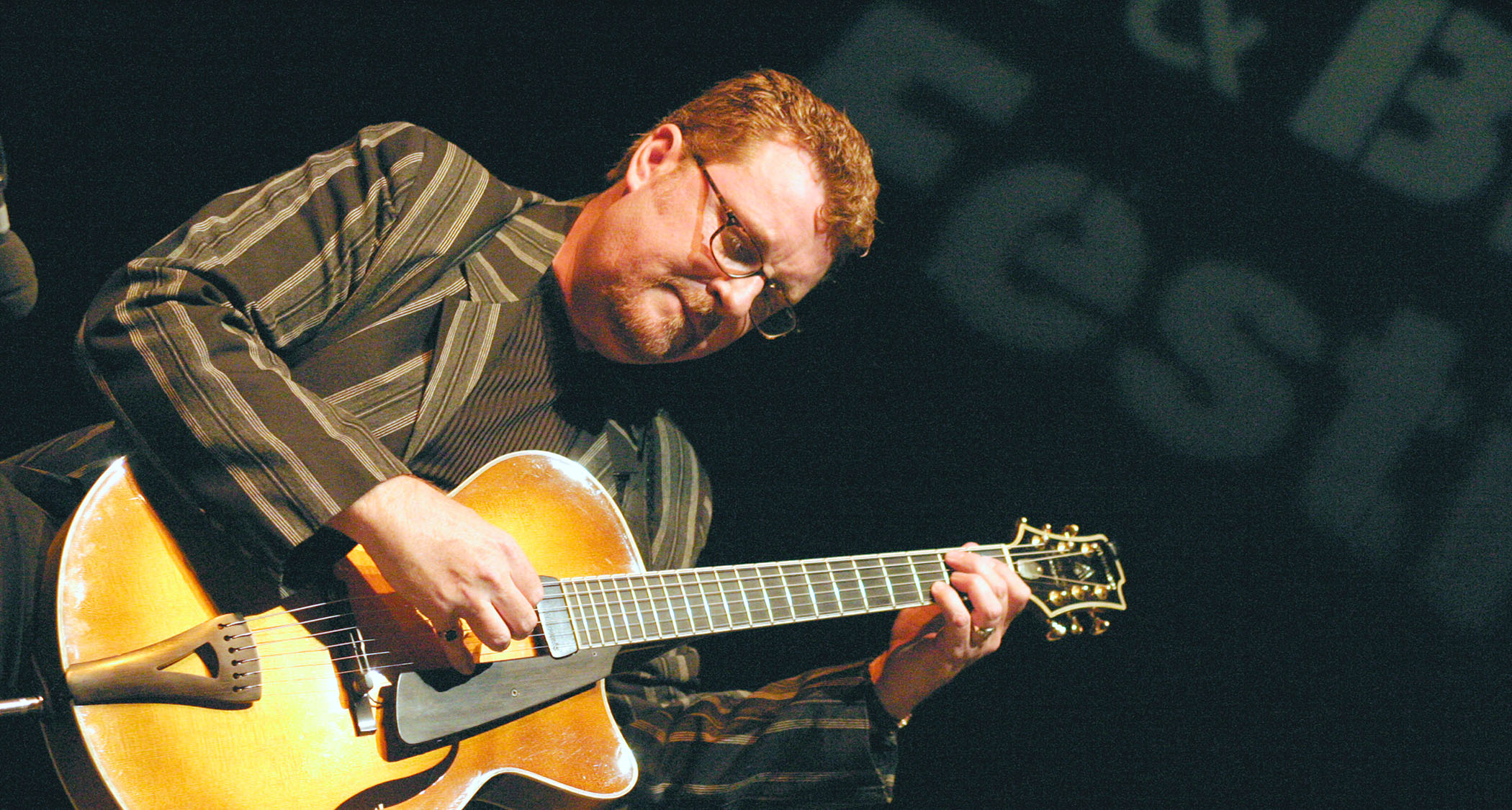

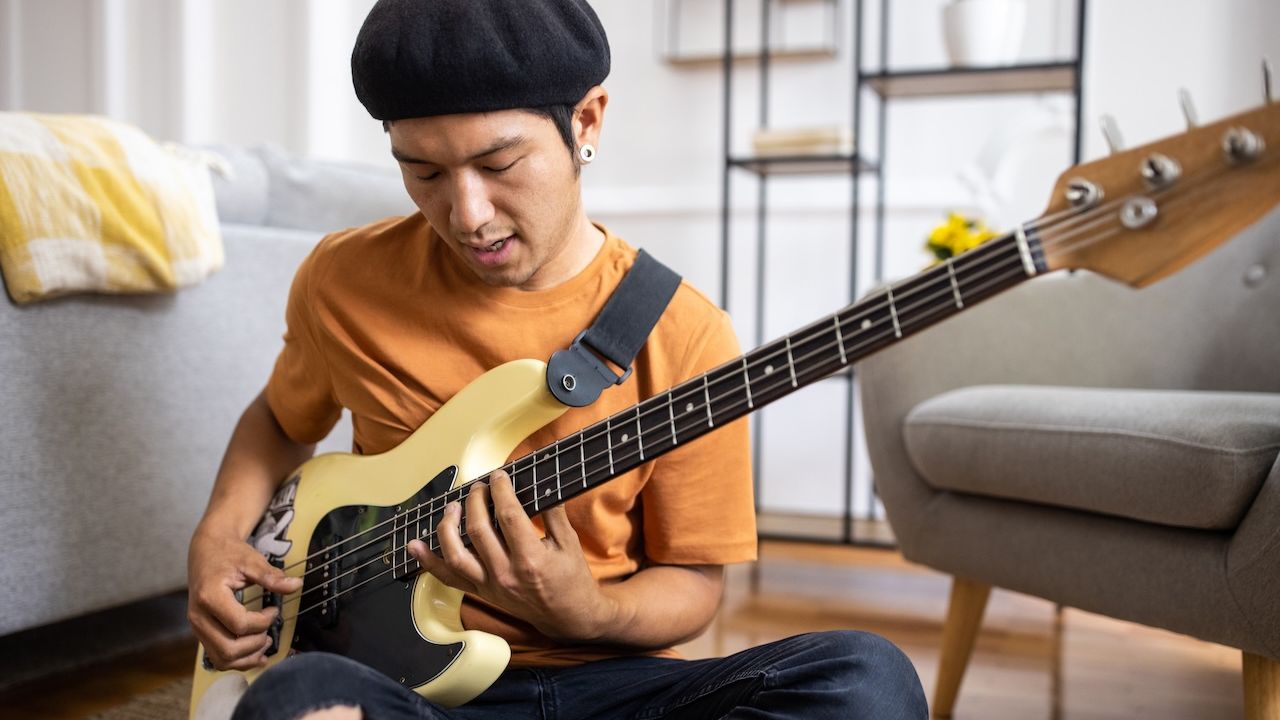

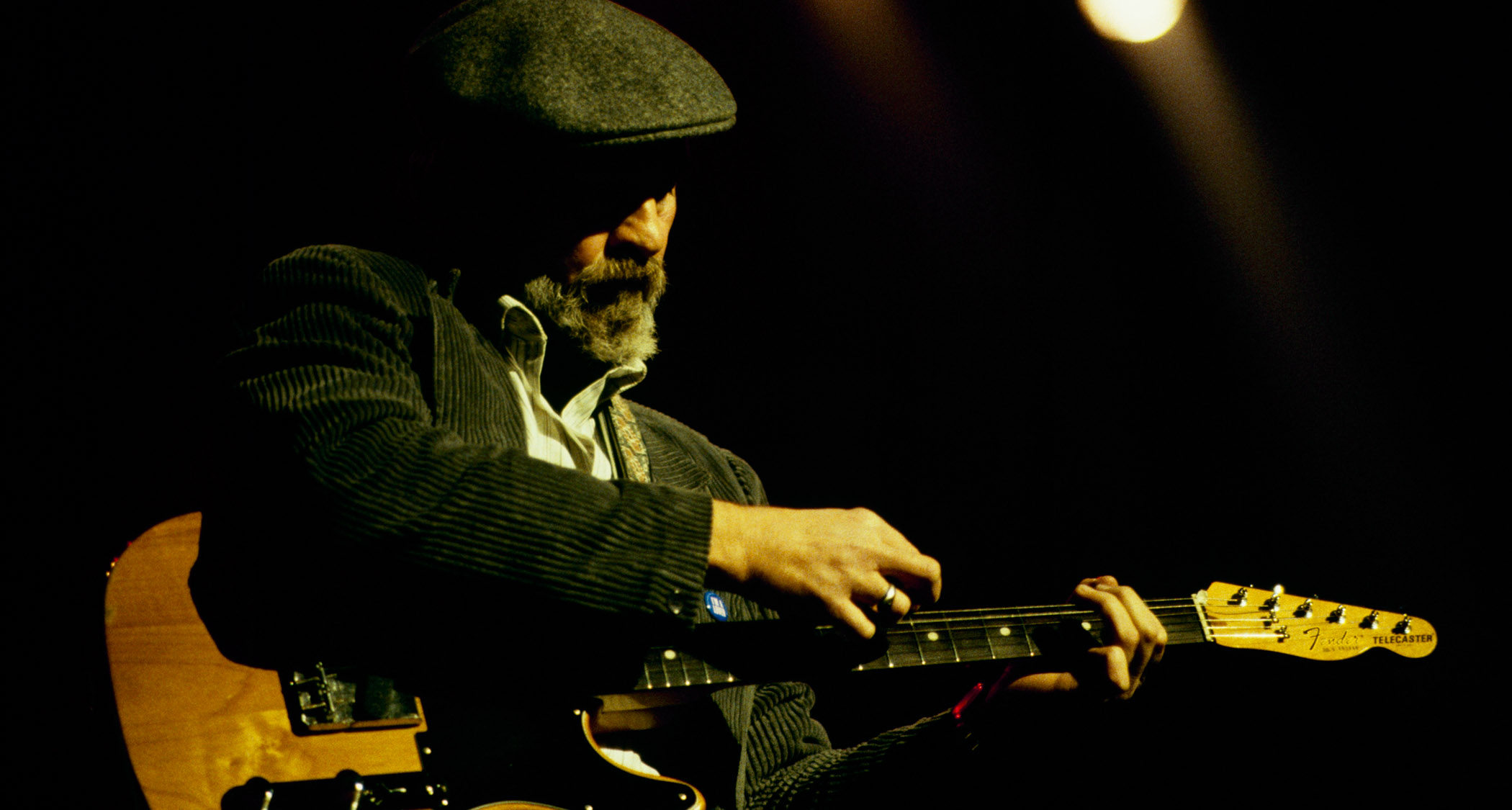
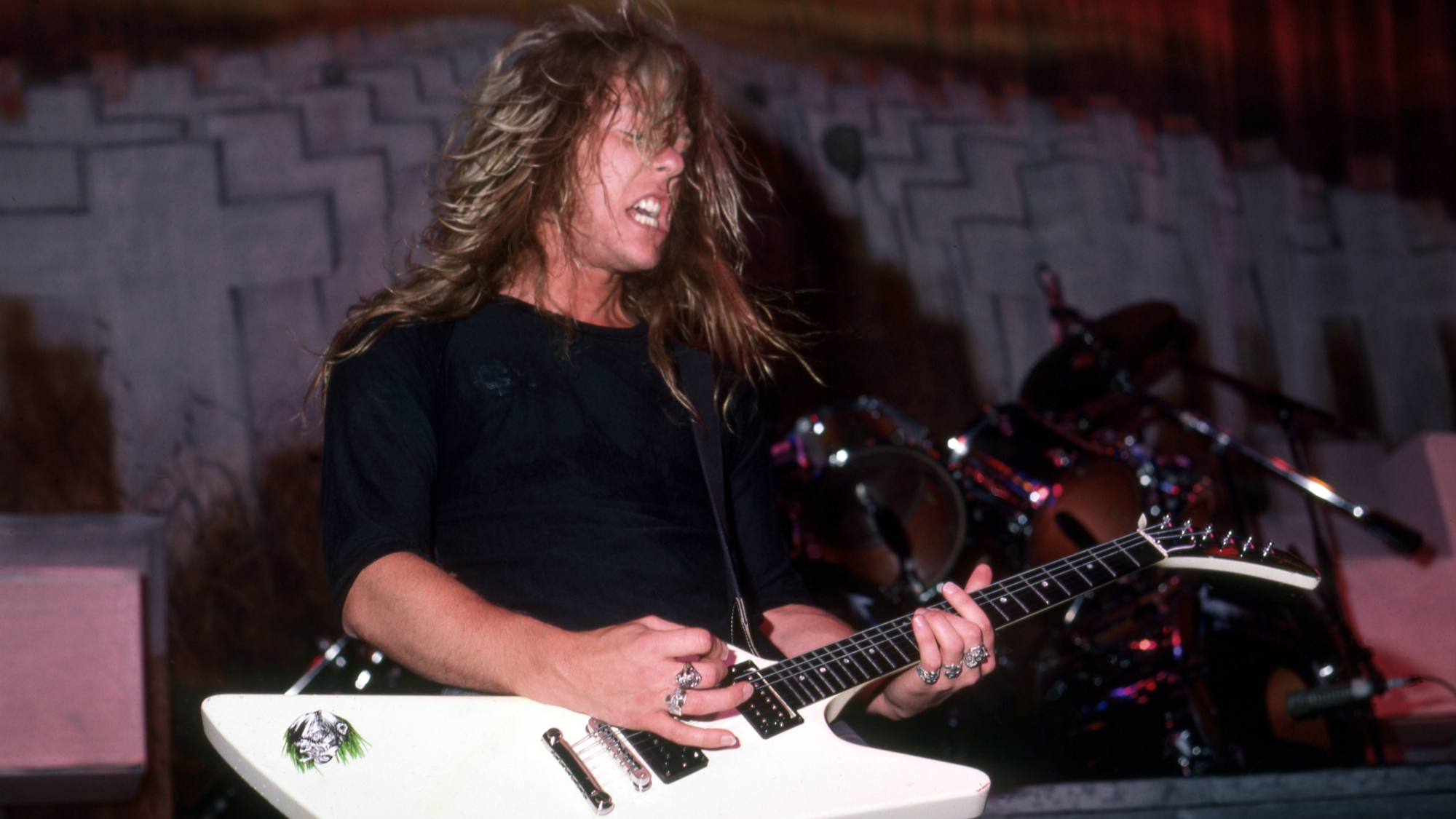
![Joe Bonamassa [left] wears a deep blue suit and polka-dotted shirt and plays his green refin Strat; the late Irish blues legend Rory Gallagher [right] screams and inflicts some punishment on his heavily worn number one Stratocaster.](https://cdn.mos.cms.futurecdn.net/cw28h7UBcTVfTLs7p7eiLe.jpg)


